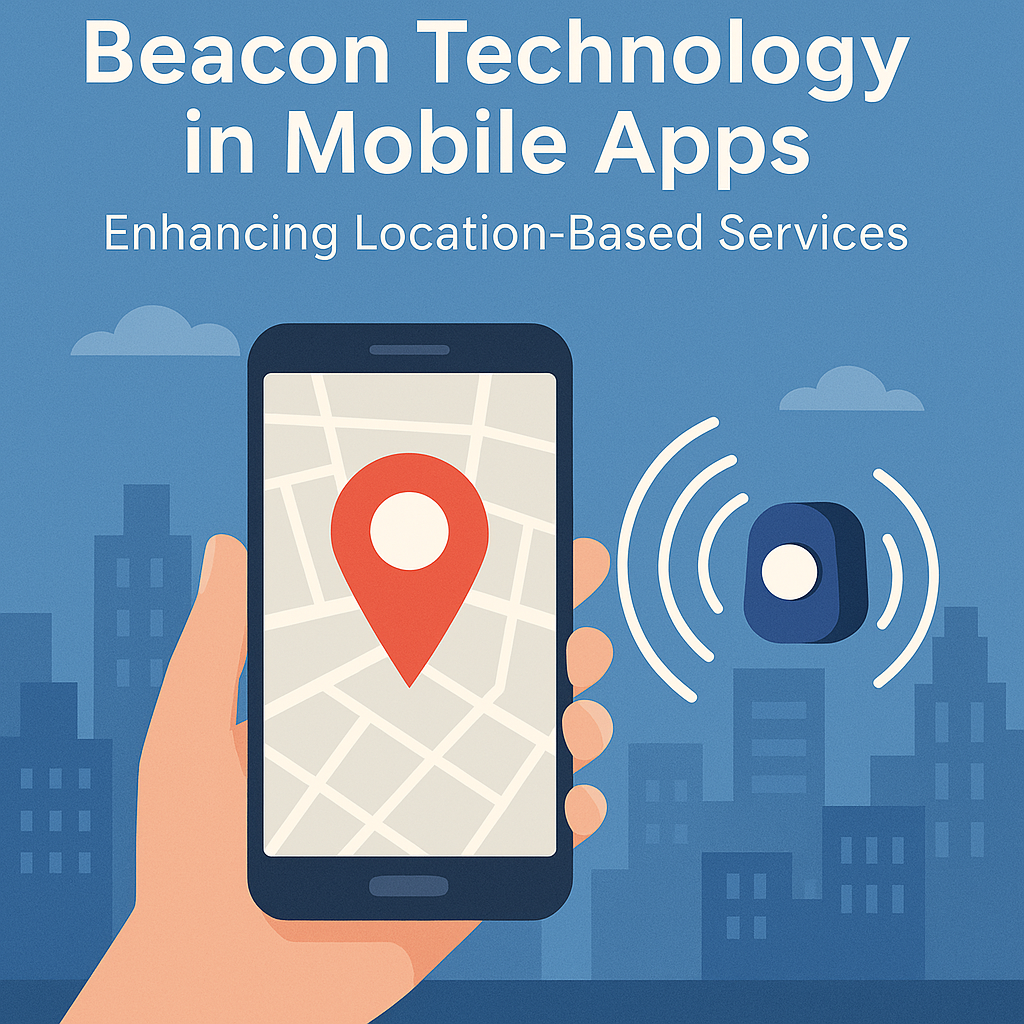In today’s digital world, businesses and consumers rely heavily on mobile applications for everything from navigation to shopping and personalized experiences. One of the most revolutionary advancements enhancing mobile apps is beacon technology. This technology allows for seamless and precise location-based services, bridging the gap between the physical and digital worlds. But what exactly is beacon technology, and how is it shaping the future of mobile apps?
This blog explores the role of beacon technology, its applications, advantages, and future impact on industries worldwide.
What is Beacon Technology?
Beacon technology consists of compact, wireless transmitters that utilize Bluetooth Low Energy (BLE) to communicate signals to nearby smart devices. These beacons enable mobile apps to recognize proximity to a particular location and trigger relevant actions.
- How It Works: When a smartphone with a compatible app enters a beacon’s range, the app picks up the signal and processes location-based content or actions.
- Key Components:
- Beacons (hardware devices)
- BLE-enabled smartphones
- Mobile applications to interpret the signal
Applications of Beacon Technology in Mobile Apps
Beacon technology is widely used across multiple industries to enhance user experience, improve customer engagement, and streamline operations. Below are some of its key applications:
1. Retail and Shopping
Retailers leverage beacon technology to enhance the shopping experience by:
- Sending personalized offers and discounts when customers enter a store.
- Providing indoor navigation to guide users to specific products.
- Offering checkout-free experiences by automating payments when customers leave with selected items.
2. Healthcare and Hospitals
Hospitals and healthcare centers utilize beacon technology for:
- Indoor navigation for patients and visitors.
- Tracking medical equipment and staff movement.
- Sending real-time appointment updates and patient reminders.
3. Hospitality and Tourism
Hotels, airports, and tourist destinations enhance guest experiences through:
- Mobile check-ins and digital room keys.
- Personalized recommendations based on location.
- Interactive tours and augmented reality (AR) experiences.
4. Smart Cities and Public Services
Government and municipal authorities deploy beacons for:
- Real-time public transportation updates.
- Location-specific emergency alerts.
- Smart parking solutions, guiding drivers to available spots.
5. Events and Entertainment
Beacon technology is transforming events, concerts, and sports venues by:
- Providing cashless transactions and in-seat ordering.
- Enabling contactless ticketing.
- Offering interactive exhibits at museums and conferences.
Advantages of Beacon Technology
The widespread adoption of beacon technology is driven by its numerous benefits:
- Enhanced Customer Engagement: Delivers personalized notifications and promotions based on user location.
- Improved Navigation: Helps users find their way inside large spaces like malls, airports, and hospitals.
- Cost-Effective: Requires minimal infrastructure compared to GPS-based systems.
- Energy Efficient: Uses BLE, which consumes less power than Wi-Fi or GPS.
- Data Collection and Analytics: Provides valuable insights into customer behavior and preferences.
- Increased Sales and Conversions: Encourages in-store purchases by offering targeted promotions.
Challenges and Limitations
While beacon technology offers numerous advantages, it also comes with challenges that developers and businesses must address:
- User Privacy Concerns: Some users may be hesitant to share location data due to privacy issues.
- Limited Range: Beacons have a restricted range, usually within 50-100 meters.
- Compatibility Issues: Requires users to enable Bluetooth and have an app installed.
- Battery Consumption: Although BLE is efficient, frequent background scanning can drain smartphone batteries.
The Future of Beacon Technology in Mobile Apps
As technology advances, beacon technology is set to evolve and integrate with other innovations, such as:
- 5G and IoT: Faster connections and smart city infrastructure will enhance location-based services.
- AI and Machine Learning: Improved personalization and predictive analytics for better customer experiences.
- Augmented Reality (AR): Beacons will enhance AR experiences by providing real-time location-based interactions.
- Blockchain for Security: Ensuring secure transactions and data privacy in beacon-enabled services.
Conclusion
Beacon technology is revolutionizing mobile apps by providing precise location-based services across various industries. From retail and healthcare to smart cities and events, beacons are creating seamless, personalized, and efficient experiences for users. As advancements in AI, IoT, and AR continue, beacon technology will play an even more significant role in shaping the future of mobile interactions.
For businesses, adopting beacon technology can lead to enhanced customer engagement, better analytics, and increased revenue. The future of mobile apps is undoubtedly beacon-powered, and companies that embrace this technology early will stay ahead of the competition.









+ There are no comments
Add yours